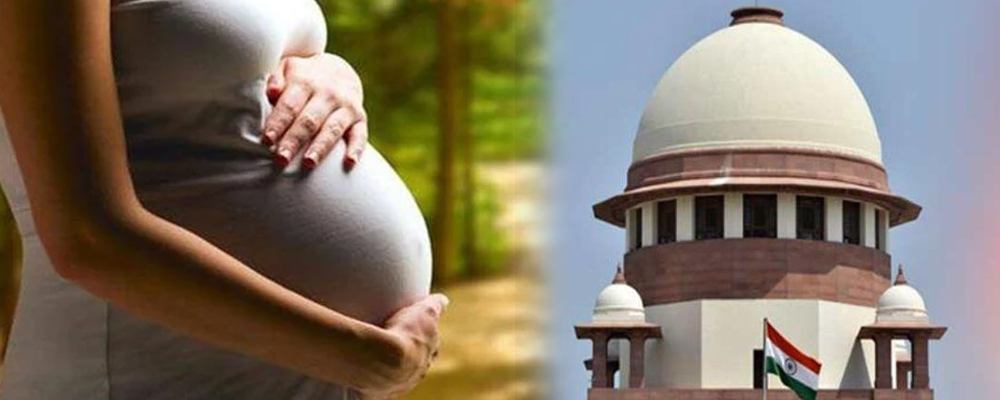In India it is seen in our community that women are being compromised for a lot of reasons in their married life, pregnancy being treated badly by their husbands. But their voice was always being shunned by our community only. It is nothing new to know that our Indian women are being subjected to physical or mental abuse in their matrimonial life by their husbands or in-laws for the reason of dowry or for not getting pregnant. Forcing them to have a child when they are not ready physically or mentally. The choice should be respected whatever it is. In our Indian legal system, many petitions and cases are already being filed in expectation of getting great judgment from our lawmakers and judges, so I guess the wait is over now.
Judgment delivered by the Kerala high court
In a significant decision given by the Kerala High Court on Monday that if a woman is facing issues and seeing changes in married life that make her question her matrimonial ties, then, according to Rule 3B of the Medical Termination of Pregnancy act she can have an abortion of her pregnancy up to 24 weeks.
Also, if the change in her relationship with his husband satisfies the requirements of section 3B of the MTP act, then divorce or husband cannot restrict that right in any manner.
Need A Legal Advice
The internet is not a lawyer and neither are you. Talk to a real lawyer about your legal issue

Thus, the Court determined that even though the lady was not yet formally divorced, she could not be denied permission to end her pregnancy because there had been significant changes in her marital life, and her husband’s consent was not necessary. Only a specific group of women are qualified to terminate their pregnancies between 20 and 24 weeks under the most recent MTP regulations. Only widowhood and divorce are recognized by the rules under the “Change of Marital Status” category.
The court made a decision regarding a petition filed by a woman aged 21 asking for authorization to undergo the MTP act. Due to the claimed excesses, her husband and mother-in-law allegedly perpetrated against her, their new marriage had hit some rocky patches. The court was informed that her spouse even questioned the paternity of the unborn child and declined to offer any support. When the woman wanted to end the pregnancy and went to the doctors, they informed her that she did not meet the requirements of the MTP Act and Rules due to the circumstances.
Facts of the case
The women petitioner failed one paper while pursuing her B.A. in Economics degree. She enrolled in a computer course to study for the supplementary exam when she met and fell in love with a bus conductor. On November 30, 2021, she left with him, and on March 11, 2021, they got married in a traditional ceremony. She told the court that she was shocked when her husband and his mother began mistreating her and making dowry demand
Even the paternity of the child was questioned when the petitioner fell pregnant in April 2022. She left her husband’s residence on August 22, 2022, and decided to go back in with her parents because of the rising brutality she was subjected to there, according to her petition. On August 31, she requested a medical abortion at https://www.leadindia.law/talk-to-lawyerthe Kottayam Medical College’s Family Planning Clinic. The Clinic’s medical staff declined the request, stating that there was no official documentation proving the petitioner’s separation from or divorce from her husband.
The woman then filed a complaint against the husband and the mother-in-law, leading to an FIR. The clinic, however, declined her request once more because the pregnancy was over 21 weeks old and there was no sign of a foetal defect or a mother’s illness.
The order given by the Hon’ble judges
In its order, the Court noted that the MTP Act was created to liberalize some already-existing laws governing abortion. According to records showing that her husband had refused to accompany her to the hospital from the beginning of her pregnancy, it was noted that the petitioner belonged to the weaker class in society and lacked the financial resources to raise the child alone.
The court looked over the categories of women who qualify for a pregnancy termination up to 24 weeks under Rule 3B and thought about whether the petitioner’s situation matched one in which the marital status had changed while the pregnancy was still going on.
She allegedly suffered abuse, which led to her leaving her husband’s business and moving in with her parents. The petitioner has also submitted a criminal complaint, stating that the mother and seventh respondent both committed acts of cruelty. It is also important to note that the respondent did not indicate any interest in returning the petitioner even before this Court, “The court stated.





 Talk to a Lawyer
Talk to a Lawyer